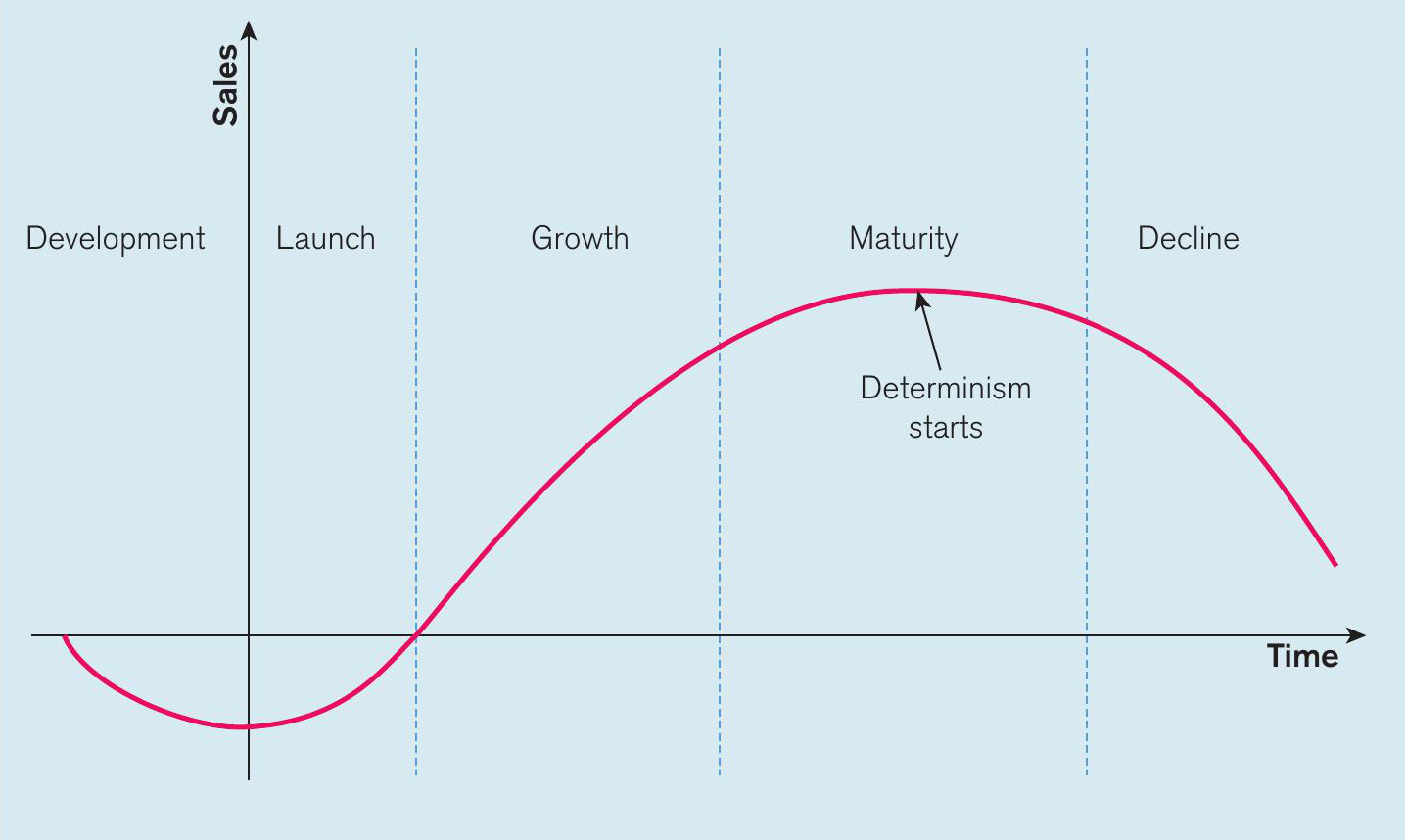
The term ‘determinism’ is often used to describe the belief that change is inevitable and that we are powerless to prevent it, i.e. it is ‘fate’. Therefore, a determinist is someone who, when faced with trouble on the horizon, will assume nothing can be done to prevent the apparently impending doom. This is known as a ‘self-fulfilling prophecy’, as our belief in the likelihood of something happening actually causes it to happen. But is this the right approach? Surely the future is not written in stone. When we are faced with change, rather than sitting back and letting it happen, we can embrace it and take action.
In business, determinism can be seen in both a micro and macro context. Its impact on the product life cycle affects individual firms, but its impact on the business cycle can affect the economy as a whole.
Your organisation does not have access to this article.
Sign up today to give your students the edge they need to achieve their best grades with subject expertise
Subscribe
